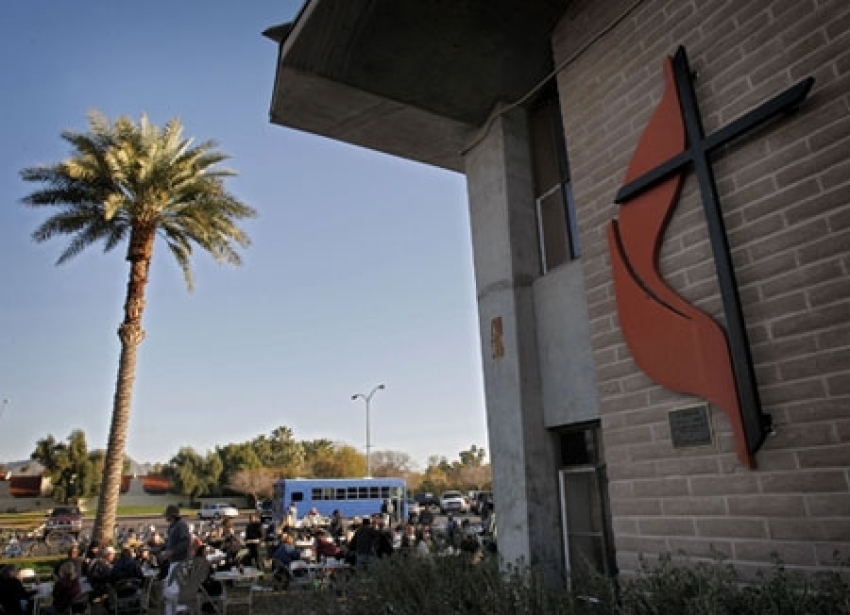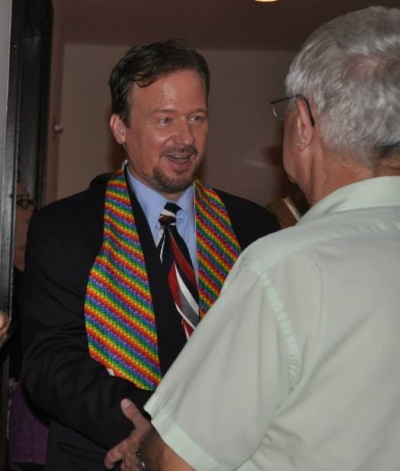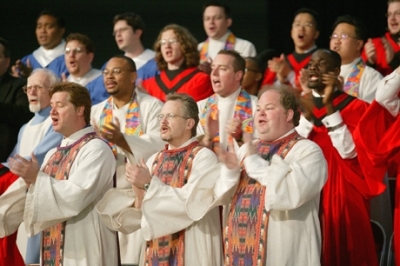Left Behind in the Mainline: Witnessing Within the United Methodist Church

Editor's Note: This is the third in a series on churches that chose not to leave their respective mainline Protestant denominations despite disagreement with the denominations' changes in theological positions. Read part one and two.
John Lomperis, director of the United Methodist Action Program at the Institute on Religion & Democracy, doesn't believe in quitting a denomination over its departure from biblical orthodoxy.
In a column published on The Christian Post's website, Lomperis referred to the tendency of many American evangelicals of leaving mainline churches as being "profoundly unbiblical."
"The New Testament presents us with a number of responses to such church problems: Teaching that explicitly refutes false beliefs. Church discipline. Patient endurance. 'Contending for the faith' – and note that when Jude gave that command, he was talking about fighting unfaithfulness within the church itself," wrote Lomperis.
"But what I do not see in Scripture is this idea that when the false teachers have gained a small foothold in or even overwhelmed a local church, we have any right to just surrender everything to them, give them full, unchallenged leadership over the local flock, just run away and quit, and maybe try to rebuild everything from scratch somewhere down the road."
A Conservative Mainline?

When compared to other mainline churches, the United Methodist Church seems to be in a different situation regarding debates on theology.
In contrast to mainline denominations like The Episcopal Church and Presbyterian Church (U.S.A.), the UMC still lists homosexuality as "incompatible with Christian teaching."
Efforts to change the UMC's official position on homosexuality, its traditional definition of marriage, or lift its ban on non-celibate homosexual ordination have failed at the General Conference level.
Furthermore, UMC has yet to experience a major schism, as conservative congregations have yet to attempt to leave the denomination.
The Rev. Tom Lambrecht, vice president & general manager of the conservative Methodist publication Good News Magazine, told CP that he believed this was due to the UMC being a global body, whereas other mainlines are mostly restricted to the US.
"The UMC has not suffered separation at this point because the strength of the church is in more conservative areas and congregations, while the more progressive areas are losing members," said Lambrecht.
"The presence of delegates from countries outside the U.S. at our General Conference is also instrumental in maintaining a more biblically orthodox policy, since many of these delegates come from areas that are very orthodox in their theology."
Much of the headline-grabbing controversy facing the UMC have to do with the vocal pro-gay wing of the denomination, as several American clergy have publicly denounced the UMC's position on sexual ethics.
Individuals like Pastor Frank Schaefer have become figureheads for the many clergy who want to bless gay unions, a practice prohibited by the UMC's Book of Discipline.
Concerns on Education

Lambrecht told CP that he believed many stay in the UMC because at the local level "their spiritual needs are met."
"Many biblically orthodox individuals stay within the UMC because they find in their local church the spiritual nurture of the gospel from orthodox pastors and/or fellowship with other orthodox believers in the congregation," said Lambrecht.
"It is also true that many individuals in local congregations are unaware of the theological divide that exists in the denomination, as pastors tend not to share that information with their congregations."
Nevertheless, Lambrecht also told CP that his organization knows of many who have left the UMC over concerns of spiritual education for themselves and their families.
"We hear from people nearly every week who have left the UMC because they could no longer withstand non-orthodox teaching in their local church or because they could not support a denomination that cannot hold its leaders accountable to maintain United Methodist doctrine and discipline," said Lambrecht.
"We consistently hear from young adults who leave the UMC because they cannot in good conscience raise their children in a church that doesn't preach the gospel or teach biblical values."



























